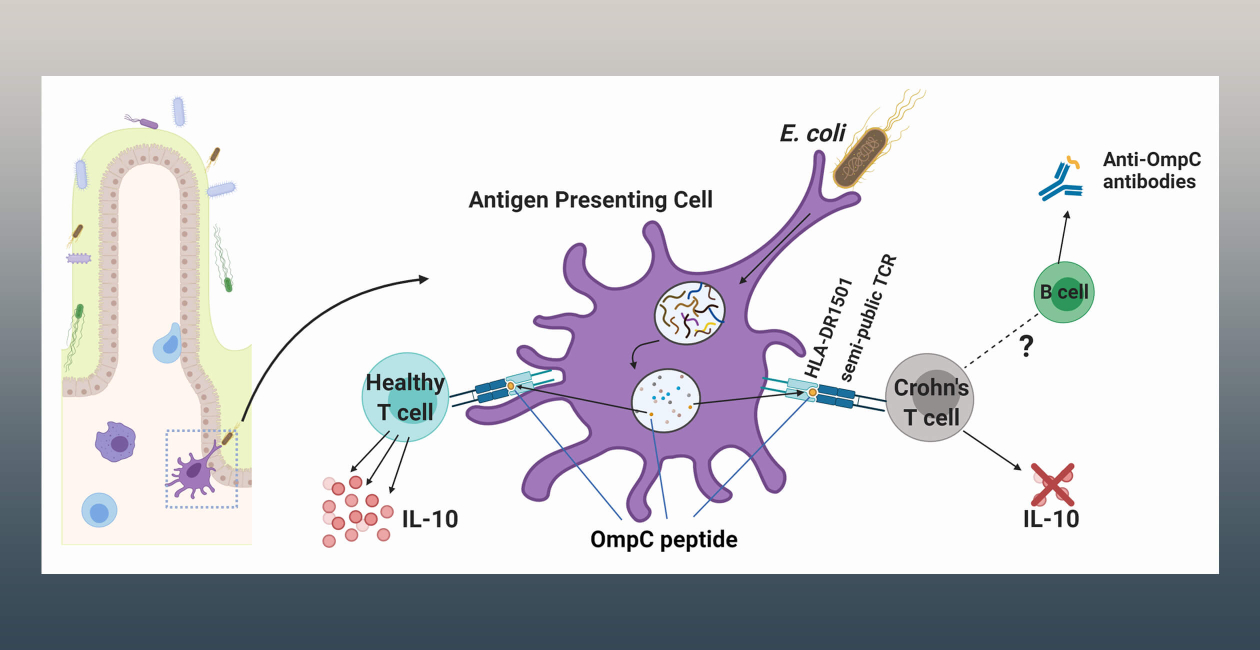An extensive body of work in animal models has implicated T cells, and particularly regulatory T cells (Tregs), as determinants of whether or not the intestines get inflamed.
We have therefore extensively characterized T cells from the blood and intestines of people with and without IBD in an effort to correlate these animal model findings with disease pathogenesis. In so doing, we have learned much about how the adaptive mucosal immune system is assembled in humans, and debunked several hypothesized T cell etiologies of IBD, such as a Treg defect.
By identifying and focusing very specifically upon T cells that recognize a gut bacterial antigen (OmpC protein from E. coli), we have found differences between people with and without Crohn’s disease that may explain a fundamental role for T cells that was not evident from animal models alone.
Featured Publications
-
Sep 2017
CD4 T Cells in IBD: Crossing the Line?
Dig Dis SciBoden EK, Lord JD -
Oct 2015
Promises and paradoxes of regulatory T cells in inflammatory bowel disease.
World J GastroenterolLord JD -
Aug 2015
Human Blood and Mucosal Regulatory T Cells Express Activation Markers and Inhibitory Receptors in Inflammatory Bowel Disease.
PLoS OneLord JD, Shows DM, Chen J, Thirlby RC -
Nov 2012
Paradoxically increased FOXP3+ T cells in IBD do not preferentially express the isoform of FOXP3 lacking exon 2.
Dig Dis SciLord JD, Valliant-Saunders K, Hahn H, Thirlby RC, Ziegler SF




